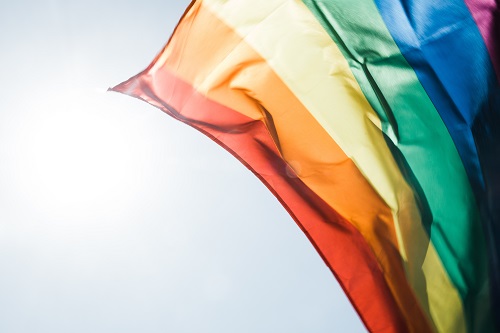Peter Hershey photo
By
Kingson Chingakham
The Supreme Court of India quashed the claim of the National Democratic Alliance (NDA) Government that ‘right to privacy is not a fundamental right.’ The nine judge bench unanimously pronounced that ‘right to privacy is a natural right and protected under Article 14 and 21 as fundamental right.’ The Supreme Court in its verdict said, “One’s sexual orientation is undoubtedly an attribute of privacy.” This gives a new hope to the already flawed 2014 verdict that criminalizes homosexual sexual activities under Section 377 of the Indian Penal Code.
Since the verdict of ‘right to privacy’ pronounced that ‘the privacy of the home must protect the family, marriage, procreation and sexual orientation which are all important aspects of dignity,’ it is very important that even though only a minority is affected by Section 377, right to privacy cannot be denied just because only a small fraction of the population is affected.
Though because of the current affairs, we have looked through the lens of ‘right to privacy,’ the better angle from which we have to view Section 377 is from ‘right to equality’ and ‘right to life and personal liberty’ enshrined in Articles 14 and 21 of the Constitution.
India is the largest democracy in the world, we are proud of our diversities. But are we really proud of gender diversity that exists in our country? Adults belonging to the LGBT community exercise their rights to vote to elect their representatives so that they can be protected by law from discrimination. If the equality before the law is just for the majorities, then the fundamental right itself is flawed. People will start losing faith in the Constitution.
It is surprising how the archaic colonial laws are preserved to deprive the free individuals to exercise what they want in their personal spheres – which do not even cause harm to anybody. If the rightists are concerned about cultural homogenization from the West, we do not need to emulate practices from the West, but we do need to think about the survival of our people – the LGBT community.
Political parties claim for inclusive development. But ‘inclusive’ is a very vague term – whom to include? And why to include? It seems like the government in power wants to selectively include certain groups or sections of people that will serve their political interests in the name of ‘inclusive development.’ If India wants to progress, we need to sensitize our people about homosexuality. The start has been insane – some treated it as a disease and some treated all homosexuals as criminals in the eyes of law.
Even if the Supreme Court decriminalizes Section 377 and the political system legislates to protect the LGBT community, it will only serve as a deterrent for millions of people to discriminate to the LGBT community for the fear of law. Therefore, care should be taken in building educational curriculum at the school level as well higher studies so that students get the awareness. Deterrent through law will only serve temporarily. Until the mentality of the people changes, it will remain as a half won victory.
As a citizen of this country, every individual has the right to live with dignity. The LGBT community has been cruelly mocked, assaulted and at times vandalized, even after 70 years of Independence. But the proud community has never surrendered. It is their strength and support from various NGOs and individuals that has kept this movement alive. The fresh verdict from the Supreme Court has opened doors to the community.
Kingson Chingakham
Kingson Chingakham is a citizen journalist based in Delhi, India. He is currently pursuing M.A Political Science from the University of Delhi. Politics and Society are his core interests. He has recently started contributing stories to Indian media houses. He aims to become a Political Journalist in the near future.



No Comments Yet!
You can be first to comment this post!